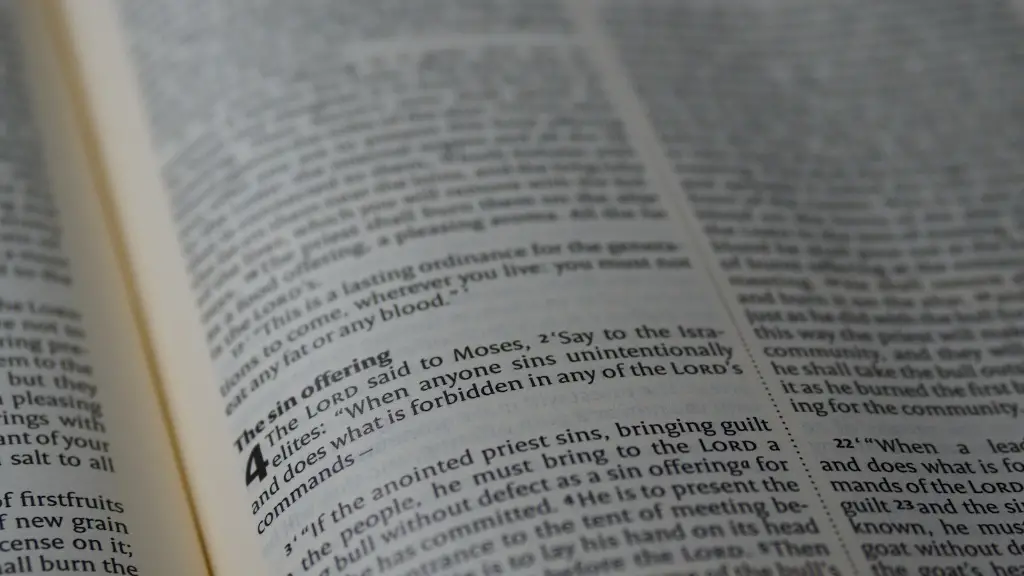Background of Good Friday
Good Friday is a significant Christian holiday as it marks the day that Jesus Christ was crucified. In the Bible, it is described as the day of His death, with the events of his death recorded in the Gospels of Matthew, Mark, Luke, and John. The narrative in the Bible tells a story of Christ’s persecution, unjust trial, and execution. After the initial trial, he was tortured, mocked, and ultimately hung on a cross to die for the sins of the world. Good Friday is the ultimate symbol of self-sacrifice and God’s ultimate plan of redemption for mankind.
What Is Good Friday to Christians?
For Christians, Good Friday is the day of immense spiritual significance as it is the day that Jesus died for the sins of mankind. It is a day of mourning, as Christians remember and reflect on Christ’s suffering and death. Through his death, Jesus made atonement for sins and opened up the path to eternal life. While the death of Jesus was sad, Christians also recognize this day as one of hope and joy, knowing that through his death He ultimately defeated death and gave each individual the ability to receive eternal life in heaven.
Symbols of Good Friday
Good Friday is a day of deep solemnity and reflection for Christians, as it is a day to commemorate the Lord’s ultimate sacrifice for mankind. Traditional Christian symbols used to commemorate this day include the cross, nails, a crown of thorns, and even a black egg, each symbolizing a part of the story of Jesus Christ. The cross symbolizes Christ’s death while the nails represent the way in which he was executed. The crown of thorns represent his suffering and the black egg symbolizes the darkness that fell on the Earth after his death.
Services and Traditions
Good Friday is typically a day of reverence and prayer for Christians. Most churches host services that focus on the crucifixion of Jesus Christ and the sacrifice he made for the world. Many will also participate in a devotion or vigil known as the “Stations of the Cross” which is a devotional journey along the story of Jesus’ crucifixion and death. Other activities on this day may include fasting, or abstaining from certain foods and activities, wearing black in mourning, and decorating churches in purple.
Easter Sunday
Although Good Friday is a solemn day, it is also a day of anticipation leading up to Easter Sunday – the day when Jesus rose again. Easter is celebrated on the first Sunday after the first full moon after the March Equinox and celebrates Jesus’ resurrection. This day marks Jesus’ defeat of death, as he rose again after three days in the grave. Churches hold special services and will often display decorated eggs, signifying new life and springtime, in honor of Jesus’ miraculous resurrection.
Meaning Behind Good Friday for Christians
For Christians, Good Friday is a reminder that God Almighty sent his only begotten son, Jesus Christ, to suffer and die for mankind’s sins. It is also a day to remember Jesus’ unconditional love for mankind and all he sacrificed in order to save us from our sinful nature and all it brings. Good Friday is a day for Christians to recognize and reflect on the tremendous amount of love that Jesus had for mankind.
Significance of Good Friday
The significance of Good Friday cannot be overstated, as it is the most important day of the Christian calendar. On this day, Jesus initiated his plan of redemption, making it possible for all believers to be saved. In addition, Good Friday is a reminder of the sacrificial love that Jesus had for each and every believer. It is a day of reverence, contemplation, and celebration of God’s ultimate plan of redemption.
Historical Context
Good Friday has been commemorated for thousands of years, although different rituals and ceremonies have taken place throughout history. In ancient times the cross symbol was used to represent the event, as well as hot molten metal or candles to represent Jesus’ pain and suffering. Throughout the ages, the celebration of Good Friday has shifted and evolved, but the significance has always remained the same: a day to remember Christ’s love and sacrifice for us.
Differences Between Good Friday and Easter Sunday
Although both Good Friday and Easter Sunday commemorate the life and death of Jesus Christ, there is a key difference between the two holidays. As mentioned, Good Friday is a day of mourning and contemplation of Jesus’ suffering and death while Easter Sunday is a day of joy and celebration, marking his resurrection and victory over death. Thus, the two holidays celebrate two different aspects of the life of Jesus Christ and the plan of eternal redemption that he set in motion.
Contemporary Celebrations
In modern times, Good Friday has become less of an outwardly expressed holiday and is often celebrated more subtly. Many people take time off from work or school and attend church services. Some participate in private services or in their local parishes, while others can be found praying alone in the privacy of their own homes. It has also become increasingly popular for churches to incorporate somber music and art into their services, expressing the important themes of Good Friday.
Significance in Pop Culture
In recent years, Good Friday has also had a larger impact on popular culture. From movies such as Mel Gibson’s Passion of the Christ to songs and books on the subject, the popular culture has become increasingly aware of both the occasions of Good Friday and Easter Sunday. These mediums have spread the message of Jesus’ crucifixion and resurrection to a broader audience and have lead to an increased depth of understanding of the true spiritual significance of Good Friday.


